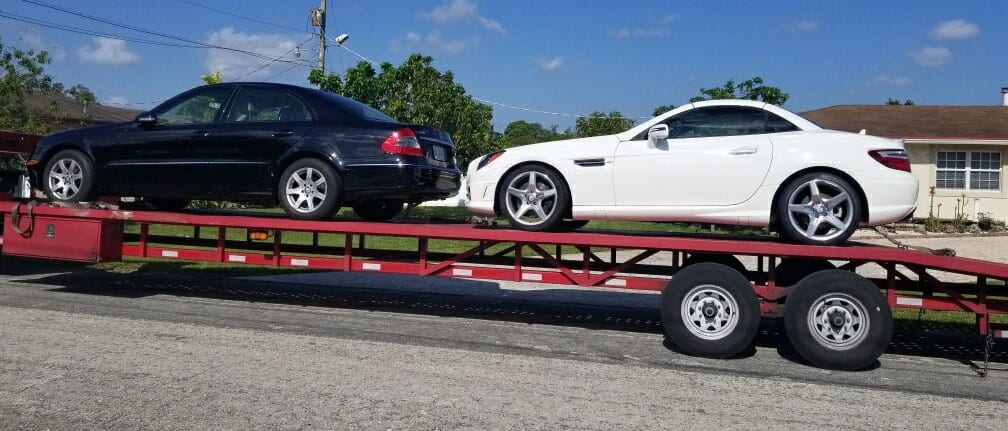Do you ever wonder if you should drain the fluids from your car before transporting it? It’s a common question that many car owners have, and the answer may surprise you. While it might seem like a logical step to prevent any leaks or spills during transport, the truth is that draining the fluids may not be necessary in most cases.
When it comes to moving your car from one location to another, whether it’s across the country or just a few miles away, there are a few things you need to consider. One of the main concerns is the potential for leaks or spills that could damage your vehicle or the carrier. However, modern car carriers are designed to secure vehicles in a way that minimizes the risk of fluid leaks.
So, what does this mean for you? Well, if your car is in good working condition and doesn’t have any known leaks or issues with its fluids, there’s no need to drain them before transport. The car carrier will take the necessary precautions to ensure that your vehicle arrives safely at its destination.
However, if you do have any concerns about potential leaks or spills, it’s always a good idea to consult with the car transport company or your mechanic. They can provide you with specific guidance based on the make and model of your car, as well as its current condition.
In conclusion, while it may seem like a logical step to drain the fluids from your car before transport, it’s often unnecessary. Modern car carriers are designed to handle vehicles with intact fluid systems, minimizing the risk of leaks or spills. However, if you have any concerns, it’s best to consult with professionals who can provide you with personalized advice based on your specific circumstances. So, the next time you need to transport your car, you can do so with peace of mind knowing that your fluids can stay where they belong.
When it comes to transporting your car, it is generally not necessary to drain fluids. However, there are a few exceptions. If you are shipping your car overseas, it may be required to drain the fuel tank to reduce the risk of fire during transport.
Additionally, if your car has a leaky or damaged engine, it is advisable to drain the fluids to prevent any further damage. In most cases, professional car transport companies are equipped to handle the transportation of vehicles with fluids intact, ensuring a safe and efficient process.

Do I Need to Drain Fluids from My Car Before Transport?
eShip Transport Company is an auto transport company that offers fast and reliable vehicle transport services across the United States. They specialize in transporting all types of vehicles, including cars, trucks, RVs, motorcycles, and boats. The company is highly rated and has been recognized as one of the top three car shipping companies in America.
They provide professional and insured transport services, ensuring the safe delivery of vehicles. eShip Transport also offers long-distance household moving services, making them a comprehensive solution for relocation needs. They have a dedicated customer service team and provide personalized assistance throughout the transportation process.
The company offers various transportation options, including enclosed transport and expedited shipping. They have a Platinum Protection Plan that covers any damage to vehicles during transport. eShip Transport is licensed, bonded, and has established trust, quality, and value in the transport industry. They have a strong online presence with positive reviews from customers.
Understanding Vehicle Transport and the Importance of Draining Fluids
When it comes to transporting your car, one question that often arises is whether you need to drain fluids from your vehicle before transport. In this article, we will delve into this topic and provide you with all the information you need to make an informed decision.
When you choose to transport your vehicle, whether it’s across the country or internationally, it’s crucial to ensure that it arrives at its destination in the best possible condition. This means taking necessary precautions to protect your vehicle from any potential damage during the transportation process.
Why Should I Consider Draining Fluids from My Car?
Draining fluids from your car before transport can help mitigate the risk of leaks and spills during transit. While modern vehicles are designed with various safety measures to prevent leaks, unexpected incidents can still occur. Here are a few reasons why draining fluids is recommended:
- Preventing Environmental Hazards: Fluid leaks during transport can pose a risk to the environment. By draining fluids, you minimize the chances of any spills that could harm the surrounding ecosystem.
- Protecting Other Vehicles: If your car is being transported alongside other vehicles, a fluid leak can damage neighboring vehicles. Draining fluids can prevent any potential damage to other cars in close proximity.
- Avoiding Fire Hazards: In rare cases, fluid leaks can lead to fire hazards. Draining fluids reduces the risk of ignition and potential accidents.
Which Fluids Should I Drain?
While it’s essential to drain certain fluids, not all fluids need to be removed from your car. Here are the fluids you should consider draining before transport:
- Gasoline: Draining the fuel tank is essential to prevent any leaks or combustion risks.
- Engine Oil: Removing engine oil helps prevent potential spills and contamination during transport.
- Transmission Fluid: Draining transmission fluid is recommended to avoid leaks that could damage other components of your vehicle.
- Brake Fluid: While it’s not always necessary, draining brake fluid can provide an extra layer of safety during transport.
Benefits of Draining Fluids Before Transport
Now that we understand the importance of draining fluids, let’s explore the benefits this practice offers:
1. Minimizes Risk of Damage
By draining fluids from your car, you significantly reduce the risk of leaks and spills during transport. This helps protect your vehicle as well as the other vehicles being transported alongside it.
2. Ensures Compliance with Transport Regulations
Many auto transport companies have specific regulations in place regarding the transportation of vehicles with fluids. Draining fluids ensures compliance with these regulations and avoids any potential issues during the transportation process.
3. Reduces Environmental Impact
Draining fluids helps prevent environmental hazards by minimizing the risk of spills. This responsible approach ensures that your vehicle transport process is environmentally friendly.
4. Peace of Mind
Knowing that you have taken all necessary precautions to protect your vehicle during transport provides peace of mind. By draining fluids, you can rest assured that you have done everything possible to ensure a safe and smooth transportation experience.
Tips for Draining Fluids Safely
While draining fluids is an important step, it’s essential to do it safely and correctly. Here are a few tips to keep in mind:
1. Consult Your Vehicle’s Manual
Before attempting to drain fluids, refer to your vehicle’s manual for specific instructions. Each car may have different requirements, and it’s crucial to follow the manufacturer’s guidelines.
2. Use Proper Safety Equipment
When draining fluids, ensure you have the necessary safety equipment, such as gloves and eye protection. This helps protect you from potential splashes or spills.
3. Dispose of Fluids Responsibly
Once you have drained the fluids, it’s crucial to dispose of them responsibly. Check with your local authorities for guidelines on proper disposal methods.
Get FREE Auto Transport Quote
(Complete the form below for free reliable vehicle transport service quote)
Conclusion
When it comes to transporting your car, draining fluids before transport is a recommended practice. It helps minimize the risk of leaks, protects the environment, and ensures compliance with transport regulations. By taking this step, you can have peace of mind knowing that you have done everything possible to ensure a safe and smooth transportation experience.
To learn more about auto transport services and how eShip Transport Company can assist you, visit the website and discover why eShip is the leading auto transport company in the United States.
Call to Action: If you’re looking for a reliable and professional auto transport company, look no further than eShip Transport. With their fast and secure vehicle transport services, they ensure the safe delivery of your car, truck, RV, motorcycle, or boat.
Whether you require open auto transport, enclosed auto transport, or expedited auto transport, eShip Transport has you covered. Visit their website to learn more and book your vehicle transport today.
Key Takeaways: Do I need to drain fluids from my car before transport?
- Draining fluids from your car before transport is not necessary, but it is recommended for certain types of vehicles.
- If your vehicle is leaking fluids or has a high risk of leakage, it is advisable to drain the fluids to prevent damage during transport.
- Consult with a professional transport company or mechanic to determine if draining fluids is necessary for your specific vehicle.
- Important fluids that should be drained include gasoline, coolant, and oil.
- Always follow the guidelines provided by the transport company to ensure a safe and smooth transportation process.
Frequently Asked Questions
Question 1: What are the essential fluids in a car that need to be drained before transport?
When preparing your car for transport, it is important to drain certain fluids to ensure a safe and hassle-free journey. The essential fluids that should be drained include:
1. Gasoline: It is crucial to have your fuel tank almost empty before transport. Most auto transport companies require the fuel level to be at a quarter tank or less. This helps reduce the weight of the vehicle and minimizes the risk of fuel leakage during transport.
2. Engine Oil: While you don’t need to completely drain the engine oil, it is recommended to have it at an appropriate level. This helps prevent any potential leaks or spills during transport.
Question 2: Why is it necessary to drain fluids from a car before transport?
Draining fluids from your car before transport is necessary for a few reasons:
1. Safety: Removing or reducing the amount of gasoline in the fuel tank reduces the risk of fire or explosion during transport. It also minimizes the weight of the vehicle, making it safer to transport on carriers or trailers.
2. Leakage Prevention: Draining fluids like engine oil helps prevent leaks or spills during transport, which can damage other vehicles or equipment. It also ensures that fluids don’t contaminate the carrier or trailer, keeping the transportation process smooth and hassle-free.
Question 3: Can I transport my car with fluids in it?
While some auto transport companies may allow you to transport your car with certain fluids, it is generally recommended to drain them. Most companies have guidelines in place that require the fuel tank to be nearly empty and other fluids to be at appropriate levels.
It is always best to consult with the specific transport company to understand their requirements and policies regarding fluid levels.
Transporting a car with fluids can increase the risk of leaks, spills, or damage to the vehicle or other equipment. Therefore, it is advisable to drain the essential fluids before transport to ensure a smooth and safe journey.
Question 4: How do I drain fluids from my car before transport?
Draining fluids from your car before transport can be done by following these steps:
1. Gasoline: Drive the car until the fuel level is close to a quarter tank or less. You can also siphon out the gasoline or use a fuel pump to remove it completely. Ensure that you store the gasoline in appropriate containers.
2. Engine Oil: Check the engine oil level and if it is above the recommended level, drain some of it out using an oil drain pan. Be cautious not to over-drain as it can cause engine damage. If the oil level is within the recommended range, you may not need to drain it completely.
Question 5: Are there any other fluids that need to be drained before transport?
Apart from gasoline and engine oil, there are a few other fluids that might need attention before transport:
1. Coolant: If your car’s coolant level is above the recommended level, it is advisable to drain some of it. This prevents any potential leaks or spills during transport.
2. Brake Fluid: Similar to coolant, if the brake fluid level is high, consider draining some of it to prevent leaks or spills. However, if the level is within the recommended range, draining may not be necessary.
Remember to consult your car’s manual or seek professional advice if you are unsure about the proper procedure for draining these fluids. It’s always better to be safe and prepared before transporting your vehicle.
A Guide to Your Car’s Fluids
Final Thoughts
So, you’re getting ready to transport your car, and you’re wondering if you need to drain any fluids before doing so. Well, the short answer is that it depends on the situation. While it’s not always necessary to drain fluids from your car before transport, there are some instances where it might be a good idea. Let’s dive in and explore the factors to consider.
If you’re shipping your car over a long distance, especially across different climates, it’s generally recommended to drain certain fluids. For example, if you’re moving from a cold climate to a hot one, it’s a good idea to drain the coolant to prevent any potential damage from freezing or boiling.
Additionally, draining the fuel tank can reduce the risk of leaks or spills during transport. However, for shorter distances or if you’re using a reputable auto transport company, they may have specific guidelines on whether or not to drain fluids. It’s always a good idea to consult with the transport company and follow their recommendations.
Remember, each situation is unique, and it’s essential to assess the specific circumstances before making a decision. Whether you need to drain fluids from your car before transport depends on factors such as distance, climate, and the guidelines provided by your chosen auto transport company.
By considering these factors and seeking expert advice, you can ensure a smooth and worry-free car transport experience. Safe travels!








